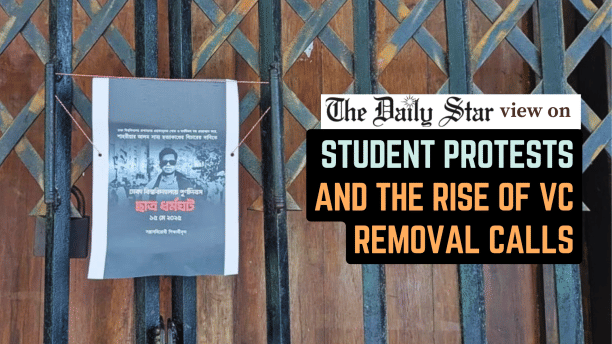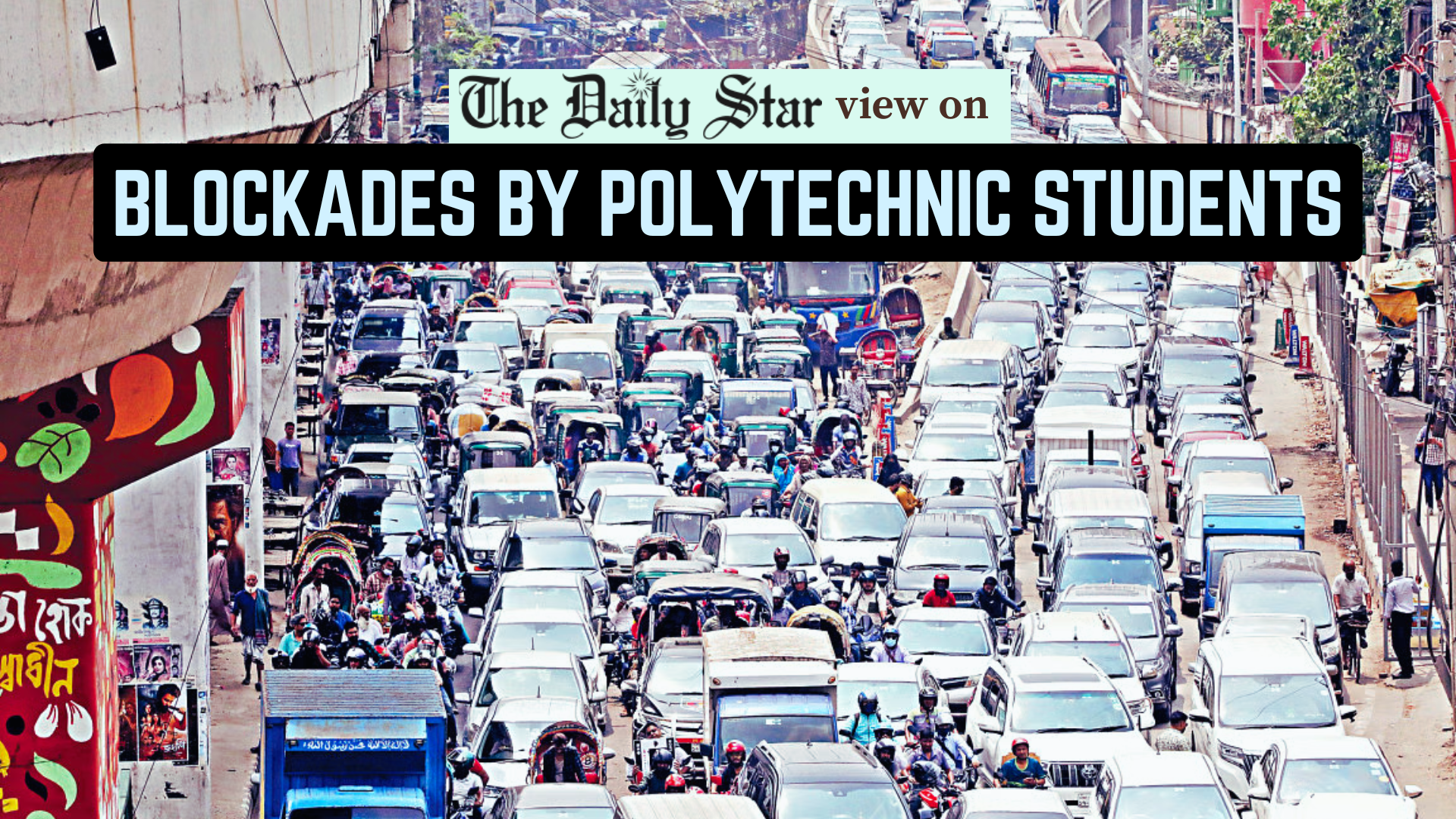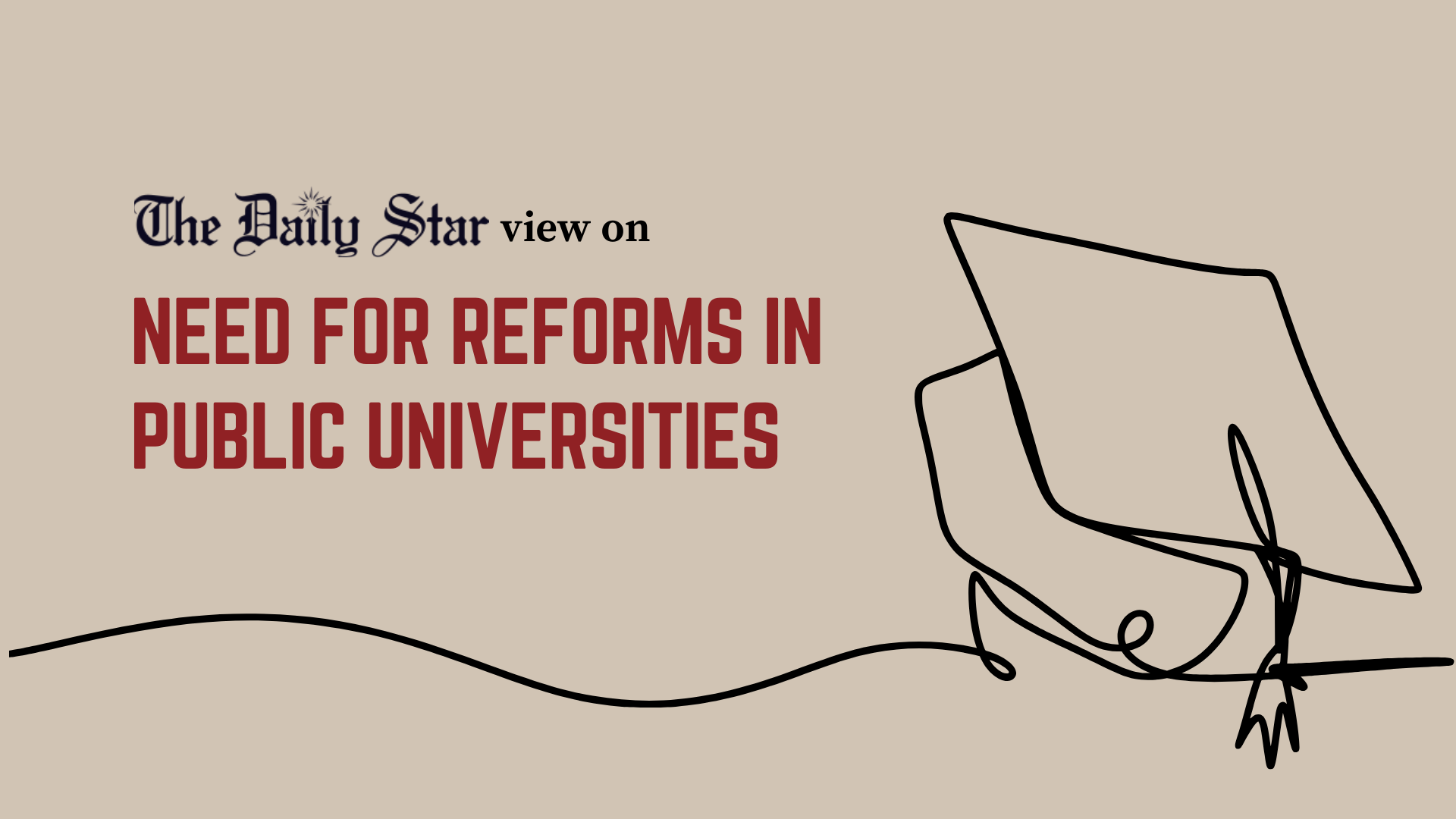Let’s not normalise forced VC removals

Given how politicised and unaccountable the institution of vice-chancellorship has become over the years, today's VCs may feel unlucky to inherit an office burdened by a legacy of distrust and poor governance. Without the politico-administrative backing their predecessors enjoyed—which often made them immune to calls for resignation or removal, however justified—the position today is as exposed as it is constrained. We're seeing its effects now at Dhaka University, where the VC is facing pressure to resign following the murder of a student affiliated with the BNP's student wing, amid frustration over the administration's perceived inaction to ensure campus safety.
Not long ago, it was the turn of KUET and Barishal University, whose VCs and deputies were removed following student protests. Previously, the principal of Dhaka Polytechnic Institute was removed amid protests by polytechnic students. These developments cannot be seen in isolation from the broader trend of unrest seen in public and, to some extent, private universities since the July uprising, which seems to have opened the floodgates to years of suppressed tensions and grievances.
At KUET, for instance, where the stalemate still persists, the VC removal saga was actually a side story to a larger crisis that has, since February 18, seen a breathless sequence of violent clashes, demonstrations, campus/dormitory closures, break-ins, student suspensions, and—to cap it all off—a face-off between students and teachers. Similar protests or disruptions have occurred in many colleges and universities over the last nine months, most recently at JnU, where a platform of students and teachers has just declared a shutdown.
One reason for such turmoil could be the students' growing demand for fairness and parity, but also their newfound power of mobilisation—making them opt for disruptive protests often as a first rather than last response, thus shrinking the space for negotiation and compromise. It is little wonder that this unsustainable, pressure-cooker atmosphere would also be directed at the VCs and principals. To be clear, no one is above reproach or accountability if there is reason for it. And VCs, as heads of universities, must answer for any administrative failure or irregularity. But it is equally crucial to insulate the process of accountability from manipulative or unjust pressure.
The mass resignations of VCs occurring after the uprising could at least be partly justified by their perceived connection with the ousted regime—under which VCs rarely resigned. But should we make up for it by unseating them without following due process? We cannot normalise this tendency of forcing VC removals—like so many other decisions that have been forced following student protests in post-uprising Bangladesh—as it will only further jeopardise the academic and administrative functions of educational institutions.
Students are demanding greater accountability from those in power, including at their universities. This should be addressed through reforms aimed at rebuilding trust and establishing robust mechanisms for resolving grievances and ensuring accountability of top officials, if necessary. It is also important that VCs are appointed not based on their connections but their professional and academic integrity. But students—and teachers—too must give due process a chance, and help to resolve, not worsen, any undesirable situation.



 For all latest news, follow The Daily Star's Google News channel.
For all latest news, follow The Daily Star's Google News channel. 




Comments